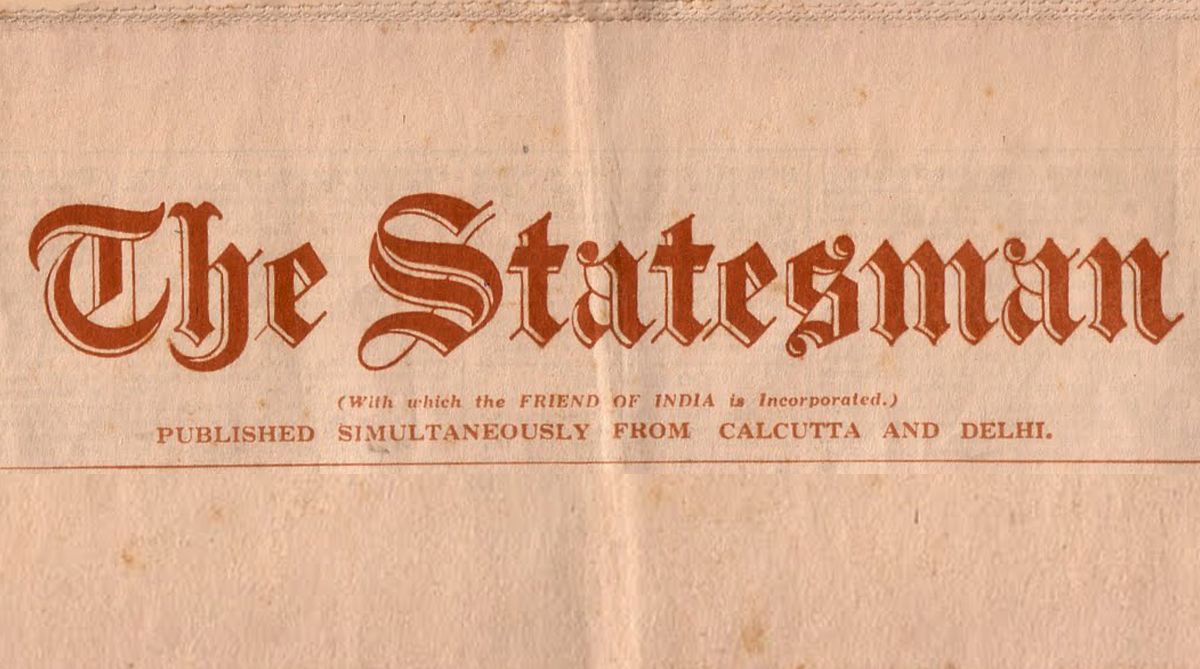A New Day, A New Dawn
There is a surprise for the readers. A special Poila Boishakh gift from none other than West Bengal chief minister Mamata Banerjee. Who has written a piece for this special edition.
On this day a century ago, these were some of the news items The Statesman readers got to read about India and the world.

OCCASIONAL NOTE
Some time ago a certain amount of feeling was stirred up in India by the report that Sir Robert Baden-Powell, the founder of the Boy Scout movement, had expressed himself as hostile to the formation of scout companies among Indian boys.
It was assumed that the Chief Scout’s opposition was based on racial grounds, and further offence was given by his use of the word “native” in the communication in which he made his views known.
Advertisement
It will be seen from a letter which Sir Robert Baden-Powell has now addressed to Mr. J. Vincent Mendes, of Madras, that he is strongly in favour of the raising of Indian boy scouts, and that his opposition a year or two ago was entirely due to the exigencies of the war.
“I wanted it to have a fair start,” writes Sir Robert, “but owing to the war the large proportion of our officers in the movement were called to other service, leaving it in the hands of a small and temporary acting staff, so that it was impossible to do more than to keep the existing troops going. We had no experts available for training new scoutmasters.”
With regard to the word “native,” General Baden-Powell explains that it is twenty years since he was in India, “and at that time the word meant nothing derogatory. Personally I have the very highest regard for Indians, and for the services they are rendering as loyal fellow-subjects in this war.”
BUNGALOWS STRUCK BY LIGHTNING
This morning at 4-15 the stationmaster’s bungalow at Barouni junction was struck by lightning. The roof has been very badly damaged and several rooms have badly suffered.
The lightning passed through the sitting-room bringing down part of the verandah, then entered the bed-room, making a big hole in floor at the foot of a bed, flashed back into the dining room bringing down large pieces of plaster, and then entered a godown, where it left large marks yellow, black and purple in colour.
It then struck the Locomotive Foreman’s bungalow, bringing the chimney down. The foreman was thrown to the floor by the shock. A bag of cartridges hanging on the wall was thrown down and shattered but none of the cartridges exploded. A second flash struck another godown, setting fire to some stores and jute. No lives have been lost.
BALASORE DACOITY CASE
Mr. Allenson, Sessions Judge, presiding over the Balasore Sessions, has been engaged for some time in hearing what is known as the Devakumar dacoity case in which Baikunthanath Ghose, president of the Panchayet, and his brother Jatindra, a student of the Ravenshaw College, with some of their men stood charged with having committed a dacoity in the house of Babu Nishibhusan Roy of Devakumar.
Disagreeing with the verdict of the assessors Mr. Allenson convicted all the nine accused and sentenced Baikunthanath Ghose to three years’ rigorous imprisonment, Jatindra to six months’ rigorous imprisonment and a fine of Rs 200, and the remaining seven accused to three years’ rigorous imprisonment each.
ALLIES’ SUPERIORITY IN THE AIR
Reuter’s correspondent at the Italian headquarters, wiring today, says: Two captured Austrian documents show the extraordinary mastery which the Allies have obtained over the enemy in aerial warfare.
The first enjoins better protection of dumps and emplacements against aerial observation by better camouflaging and less military orderliness. The second is from a colonel commanding artillery, who seeks to explain the impossibility of systematic and effective destruction of allied artillery, and indicates that the Allied guns, as well as their observations, are superior.
The writer complains that the inferiority of his batteries in number and power and restriction of ammunition supply render it impossible to comply with the infantry’s request for better artillery protection.
THE GERMAN BEER CASE
An appeal is being made to the Lieutenant-Governor for clemency in the case of A.F. Mathol, the Dutch subject sentenced to three months’ simple imprisonment for concealment of enemy assets.
Commenting on the existence of a feeling that Mathol has been harshly treated, the Rangoon Times says that the feeling does more credit to the hearts of those who entertain it than to their heads.
Neutral firms are able to make large profits in the British Empire and are free from the responsibility of their assistants doing Indian Defence Force duties or being called on to join the Indian Army Reserve of Officers. In a characteristic desire to be fair, even generous, to others the British nation is often unfair to itself and its own interests.
Advertisement